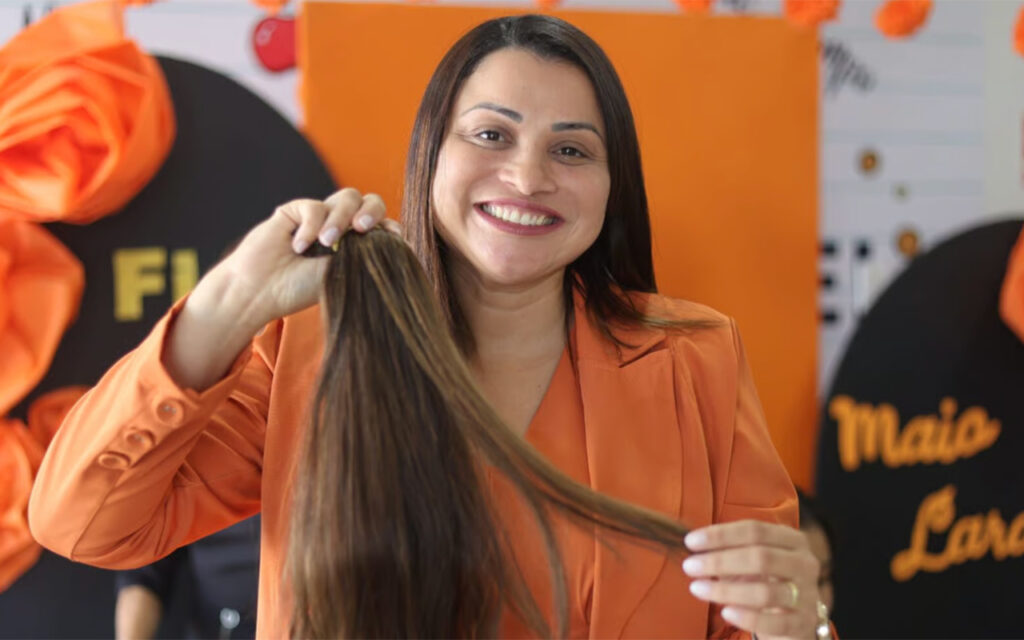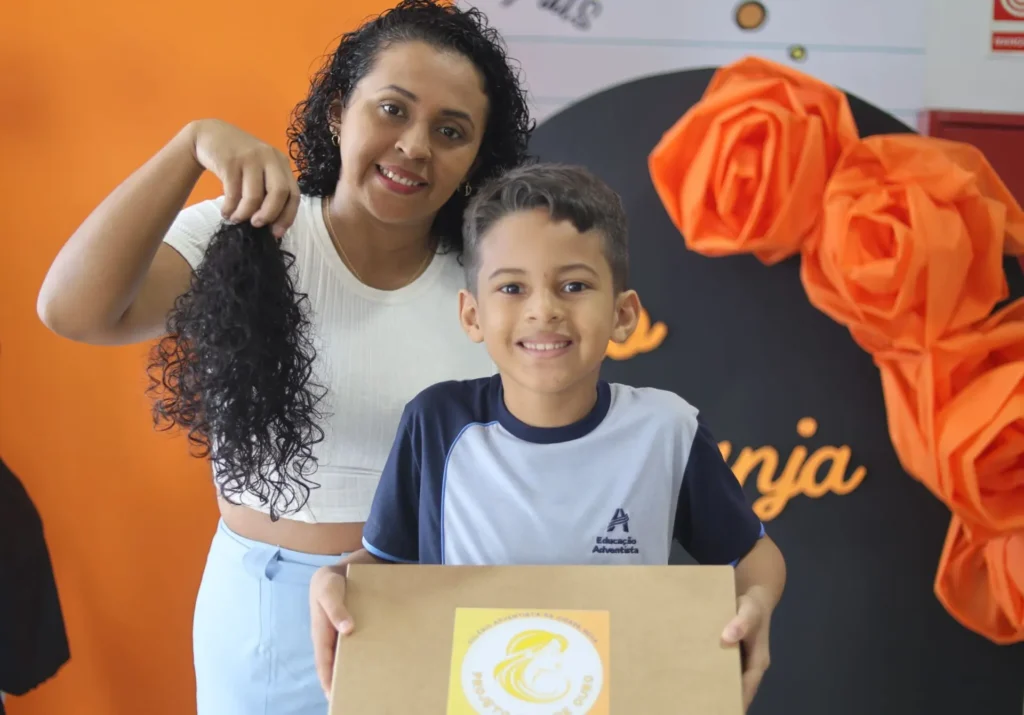Brazilian Students Rally to Aid Scalping Victims Through Hair Donation Initiative
More than 70 natural hair donations were collected by the Pára Adventist school community through the Fios de Ouro project.
In many riverside communities in Pára, Brazil, boat engine accidents result in traumatic hair and scalp loss. According to data from the Fundação Santa Casa de Misericórdia do Pará (Holy House of Mercy Foundation in Pára), a local health organization, 207 cases of scalping have been recorded in 41 municipalities throughout the region in recent years.
Scalping accidents predominantly affect women who live on the banks of rivers and riverbanks in the Amazon of Pará, causing profound impacts on their lives and communities.

Hair collection with Fios de Ouro Project. [Photo: Kenio Pantoja]
Students from the Rede Adventista de Educação, the Adventist education network in the city of Ananindeua, in Pará, are making a difference with the Fios de Ouro (Golden Threads) project, an initiative that seeks to collect hair for scalping victims. This gesture demonstrates the commitment and compassion of students, faculty, and staff to help the community, emphasizing that solidarity has no age.
For Vivian de Nazaré, a local Adventist school student, solidarity benefits others. “If it were me who had been scalped, I would want people to donate it to me. I would be very happy. And I want to make a difference in other people’s lives,” says Nazaré.
According to Mônica Yamaoka, the Fios de Ouro project coordinator, it is gratifying to see countless people contributing. “Students are embracing the cause. Many parents are coming to donate hair. We are experiencing solidarity and empathy, which is exciting”, she highlights.
On May 29, 2024, more than 70 natural hair donations were collected by the school community.

Parents and students come together in an act of solidarity. [Photo: South American Division]
Treatment and support for victims
Since 2005, the Fundação Santa Casa has been a leading provider of assistance to scalping victims. They have established a comprehensive care program for victims. The institution also provides support to victims during outpatient treatment when they do not have a home or family. The Espaço Acolher (Welcome Space) area ensures assistance to victims through social services, psychology, an administrative team, and educators from the Department of Education of Pará and the University of the State of Pará (Uepa), which, under an agreement, operates within the foundation.
According to Jureuda Duarte, a psychologist at Espaço Acolher, donating hair helps restore the recipient’s self-esteem and is also a symbol of hope and support. “Actions like this from the Adventist school are fantastic. They promote human rights, compassion, empathy, and form the character of our youth, so that they understand that they need to give of themselves and have compassion,” she highlights.
For Ana Alice Maia, one of the victims of scalping, actions like this are extremely important. “I had an accident when I was just 12 years old. Losing your hair is a very difficult situation to face. Donating hair is very important for the victims. Seeing hair donations at this rate, with children donating and women donating, makes me very happy, and I am immensely grateful because it is an act of love,” she emphasizes.
The original article was published on the South American Division Portuguese website.